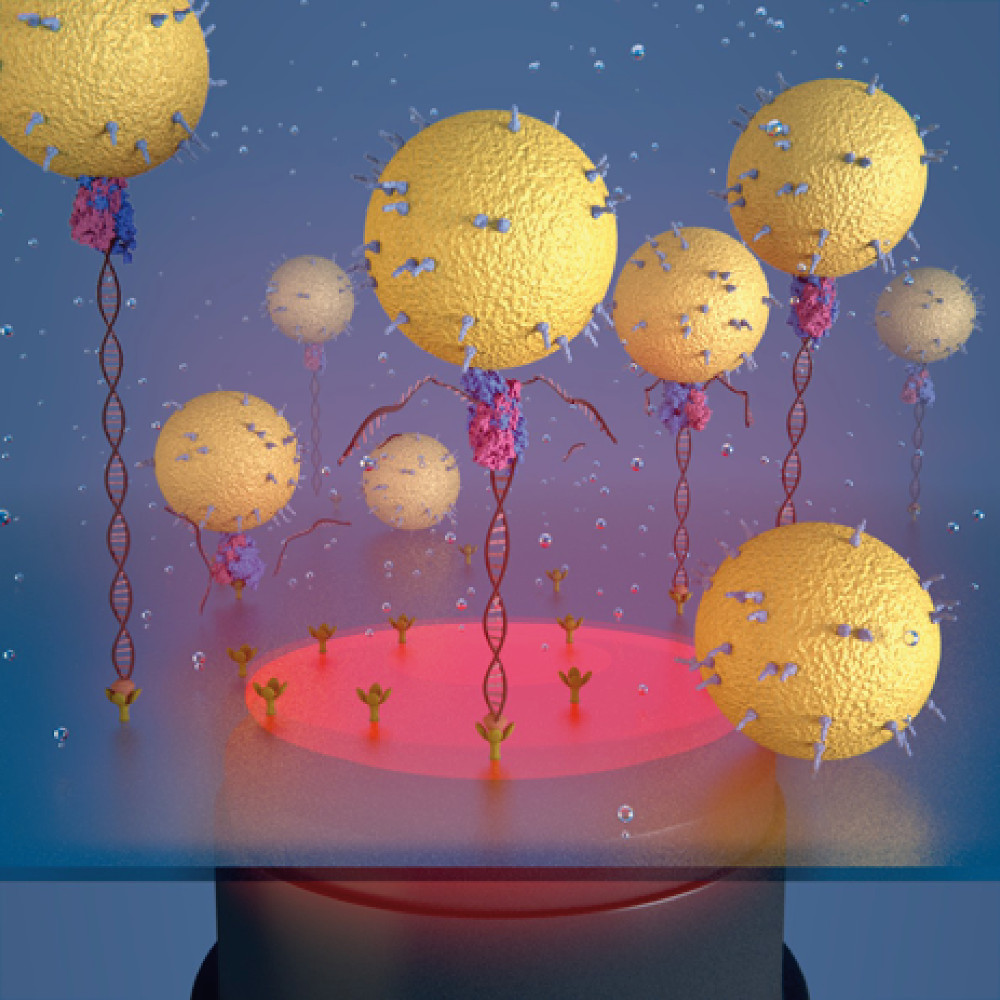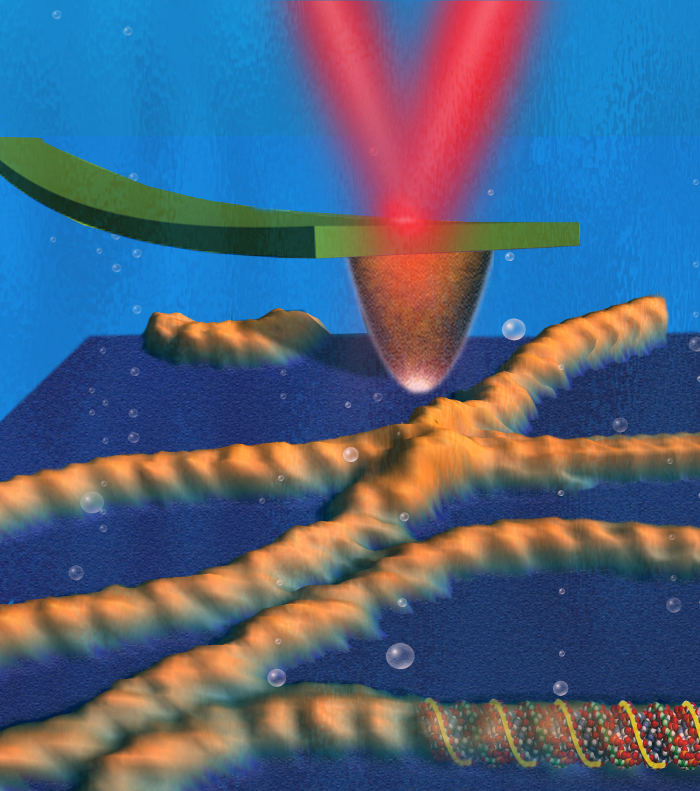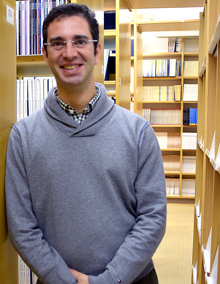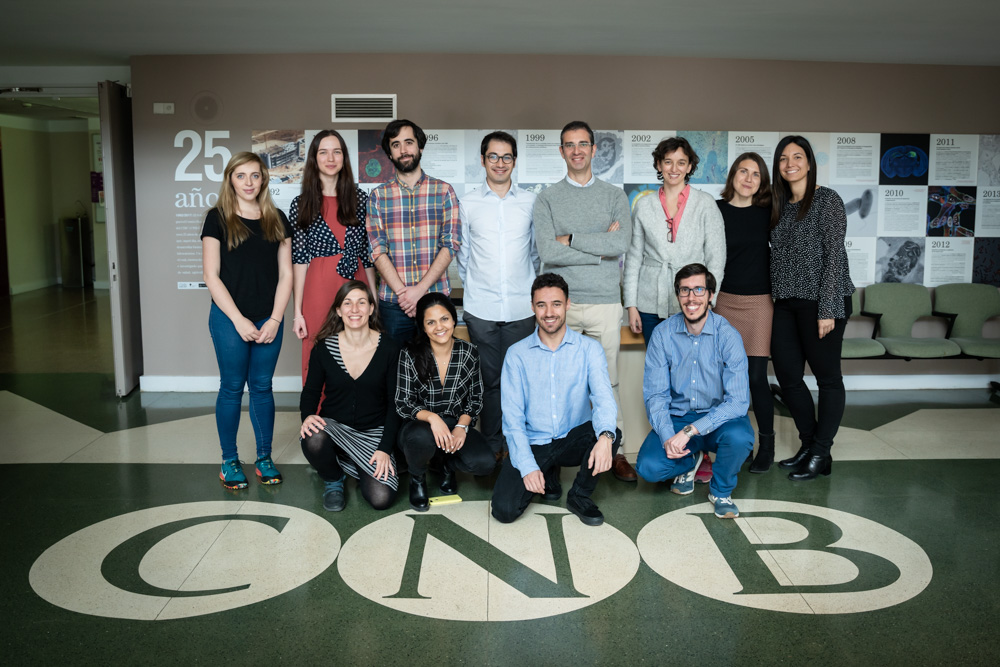Fernando Moreno-Herrero
Group Leader
Research summary
DNA breaks are a potentially catastrophic form of DNA damage that can lead to cell death, premature ageing or cancer. Our group aim to answer key questions in DNA break repair using novel approaches based on single molecule techniques.
Publications
Wilkinson OJ, Carrasco C, Aicart-Ramos C, Moreno-Herrero F, Dillingham MS. Bulk and single-molecule analysis of a bacterial DNA2-like helicase nuclease reveals a single-stranded DNA looping motor Nucleic Acids Res. 2020 Jul 4;gkaa562 doi: 10.1093/nar/gkaa562
Marin-Gonzalez A, Pastrana CL, Bocanegra R, Martin-Gonzalez A, Vilhena JG, Perez R, Ibarra B, Aicart-Ramos C, Moreno-Herrero F. Understanding the paradoxical mechanical response of in-phase A-tracts at different force regimes. Nucleic Acids Res. 2020 May 21;48(9):5024-5036. doi: 10.1093/nar/gkaa225.
Carrasco C, Pastrana CL, Aicart-Ramos C, Leuba SH, Khan SA, Moreno-Herrero F. Dynamics of DNA nicking and unwinding by the RepC-PcrA complex. Nucleic Acid Res. 2020 Feb 28;48(4):2013-2025. doi: 10.1093/nar/gkz1200.
Marin-Gonzalez A, Vilhena JG, Moreno-Herrero F, Perez R. Sequence-dependent mechanical properties of double-stranded RNA. Nanoscale 2019 Nov 28;11(44):21471-21478. doi: 10.1039/c9nr07516j
Madariaga-Marcos J, Pastrana CL, Fisher GLM, Dillingham MS, Moreno-Herrero F. ParB dynamics and the critical role of the CTD in DNA condensation unveiled by combined force-fluorescence measurements. eLife Mar 25;8:e43812.doi: 10.7554/eLife.43812
 We develop and employ single-molecule techniques to study the inner workings of protein machines involved in DNA repair processes and maintenance of chromosome structures. We are also interested in studying the mechanical properties of nucleic acids and their interaction with proteins, using novel single-molecule approaches based on atomic force microscopy (AFM) and magnetic tweezers.
We develop and employ single-molecule techniques to study the inner workings of protein machines involved in DNA repair processes and maintenance of chromosome structures. We are also interested in studying the mechanical properties of nucleic acids and their interaction with proteins, using novel single-molecule approaches based on atomic force microscopy (AFM) and magnetic tweezers.
In the last two years, we developed temperature-controlled magnetic tweezers to study the kinetics of double-stranded DNA processing by the protein complex AddAB, a helicase nuclease involved in dsDNA break repair. This method allowed us to determine the kinetic barrier of the enzymatic reaction. During this research, we also deepened our knowledge of the mechanism of Chi regulatory sequence recognition by AddAB, using a combination of biophysical and biochemical techniques. AddAB has a molecular latch that enables part of the DNA substrate to evade degradation beyond Chi. Our data suggest a model in which allosteric communication between Chi binding and the latch ensures quality control during recombination hotspot recognition.
We also investigated the ParB protein interaction with centromere-like DNA sequences, called parS, located near the origin of replication. We determined that ParB binds parS as a homodimer and displays positive co-operativity associated with formation of larger, poorly defined nucleoprotein complexes. Our data demonstrated that non-specific ParB binding leads to DNA condensation that is reversible by protein unbinding or force. These findings have consequences for chromosome condensation and segregation. Other ongoing projects using biophysical methods include study of the initiation of replication by the rolling circle mechanism and use of fluorescence microscopy and force spectroscopy in a combined magnetictweezers TIRF setup developed in-house. In addition, we use molecular dynamics methods to understand the effect of force in the mechanical properties of DNA and RNA. Finally, we have pushed the resolution limits of our AFM to resolve the A-form subhelical pitch periodicity of doublestranded RNA in near-physiological conditions.









